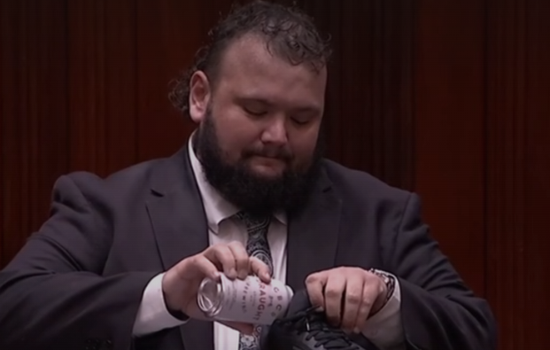
Valerie Gill started taking Contrave, a prescription weight-loss drug, 11 months ago after experiencing weight-related health problems that she couldn't control with diet and exercise alone.
Like many other Americans who have started using medications like Wegovy and Ozempic over the past year, the 36-year-old is facing changes not only in her health but in other aspects of her life as well. And one of the biggest surprises has been the impact these changes have had on her relationship with her boyfriend.
“It's been an emotional nightmare in the relationship,” she says.
For Gill, this transformation has been a combination of support, misunderstandings, and uncertainty.
"My boyfriend has stood by me, but we've had long conversations about body image, the pressures, and the impact this journey has had on us as a couple," she explains.
On the one hand, the experience has brought them closer together, forcing them to adapt to a new phase of life and change their daily lifestyle.
On the other hand, her partner has expressed concern that she is focusing more on appearance and medicine than on health and well-being.
The decision to take these medications can have a major impact on romantic relationships — from feeling out of sync with your partner to canceling plans together. According to therapist Rachel Goldberg,
“Taking a weight loss drug can significantly change the dynamics of a relationship, because when one person undergoes major physical or emotional changes, both partners have to adapt to this transformation. If they don't, they may start to drift apart.”
In Gill's case, this change has led to concerns about whether she will be "good enough" if she stops taking the medication. She has begun to wonder if her boyfriend's interest in her is related to her weight loss progress.
“He complimented me on my transformation, but I felt pressured to keep going at times,” she says. “Even the smallest things, like if I gained or lost a few pounds in a day, could cause tension and awkward situations.”
However, despite these dilemmas, she feels that her self-confidence has improved since starting treatment with Contrave.
Meanwhile, weight loss drugs don't just affect those taking them, but also their partners, Goldberg explains.
"If a person improves self-control over eating, loses weight, and feels better about themselves, their partner may see this change as a threat, especially if they were used to connecting through activities like going out to eat," she says.
"Also, fears of being neglected or abandoned may arise."
Another challenge is the side effects of these medications, which in Gill's case have led to postponing or canceling plans with her partner. Marriage and family therapist Leanna Stockard explains that some of the side effects, such as nausea or diarrhea, can affect the desire to go out or be socially active.
In addition to the physical impact, these medications can cause emotional changes such as anxiety, depression, mood swings, decreased libido, or irritability.
But it's not all negative. In many cases, this transformation can strengthen romantic relationships. Goldberg says:
"Previously, a partner might have less interest in intimacy due to insecurity about their body. When they feel better about themselves, they may show more interest in how they dress and seek more physical contact."
For Gill, the increased confidence has brought a new energy to her relationship.
Anne-Marie Zanzal, 60, and her husband, Tonda McKay, 62, have experienced the positive side of these changes in their relationship. They describe themselves as a couple who had reached “the stage of being healthy and happy,” but realized that their excess weight was affecting their energy.
Zanzal did not qualify for treatment from his doctor and health insurance, so he decided to purchase compounded semaglutide through an online provider in August.
“The first supplier was easy to contact, but there was no support and I had a lot of side effects, like nausea and heartburn,” she says.
In December, she switched to another program through Weight Watchers, and the side effects eased.
On the other hand, McKay, who suffers from diabetes and heart problems, received approval to start Ozempic in December, a change that has positively affected their relationship.
"Tonda is afraid of needles, so I give her the injection," explains Zanzal.
"We talk about everything and support each other."
McKay is more active and has more energy, allowing them to do more things together. What's more, they both feel more attractive in their own bodies.
Although McKay has experienced some gastrointestinal discomfort and constipation since starting treatment with Ozempic, the couple feels better physically and emotionally.
"It's nice to have him by my side on this journey," says Zanzal. "Everything is easier when you have a friend or a partner by your side."
Source: Popsugar





